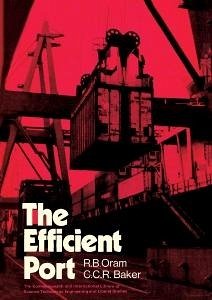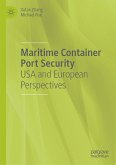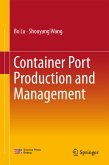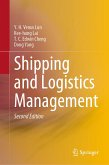The book discusses the port's history, current function and design, and changes over the years. It also reviews the port's many important components: the berth, the ship, the laborers, and the cargo. The book recommends improvements to mechanization and general cargo work, as well as to the management and administration of ports; it also discusses what ports will be like in the future and the problems they may face.
This book will appeal to port authorities, coastguards, shipping lines, logistics and cargo companies, naval architects, and other professionals whose livelihood centers on the port, its many activities and functions, and its management.
Dieser Download kann aus rechtlichen Gründen nur mit Rechnungsadresse in A, B, BG, CY, CZ, D, DK, EW, E, FIN, F, GR, HR, H, IRL, I, LT, L, LR, M, NL, PL, P, R, S, SLO, SK ausgeliefert werden.









